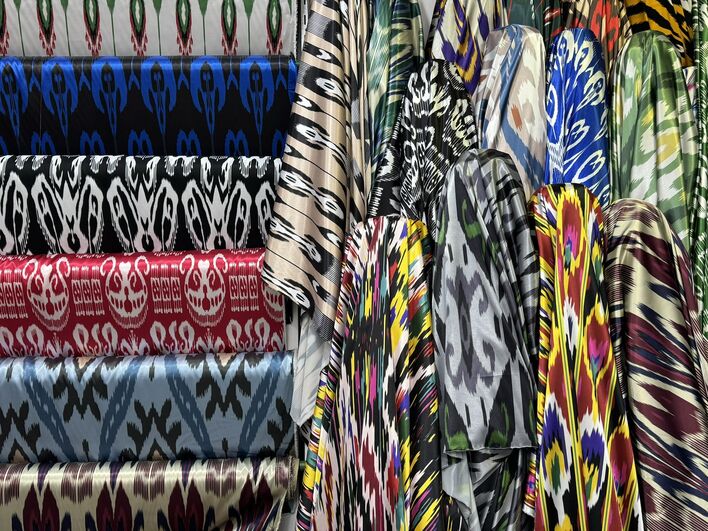The Ethnologisches Museum preserves a collection of approximately 900 Uyghur objects from the 19th century. As part of the module “Material Culture, Identity and Statehood” at the Humboldt Forum, a small selection of these artefacts is display for the first time. Both the collection and the exhibition play a special role for Uyghurs, not least because of the repression against them and their culture in China. The collaborative project aims to establish a connection between the museum objects and today’s Uyghur identity.

The curator and the Uyghur scholar Ablet Semet explored examples of contemporary Uyghur culture in two major Uyghur diaspora communities in Kazakhstan and Turkey: What do “Uyghur” products – from wedding dresses and wood carvings to mobile phone cases with printed Uyghur patterns – mean to their producers, sellers and buyers? What would they like to see in an exhibition about contemporary Uyghur identity? These questions gave rise to conversations about people’s biographies, lost homes, and attempts to find a place in a foreign country without giving up one’s cultural identity. The everyday concerns of the Istanbul and Kazakh Uyghurs were very different: while the recent arrivals in Istanbul were struggling to survive economically and worrying about family members who had remained in Xinjiang, Uyghurs in Kazakhstan complained about increasing pressure to assimilate from the Kazakh state. Their coping strategies, ranging from adaptation to nostalgia and resistance, are equally diverse.
Together with the Uyghur artist Mukaddas Mijit, the results of the interviews as well as the objects acquired on site will be used to develop two concepts that present the connection between (material) culture and Uyghur identity in the exhibition section on Central Asia. They will be shown one after the other.
Key Project Info
Region: Central Asia, Turkey
Communities: Uyghurs in Istanbul, Uyghurs in Kazakhstan
Cooperation partner: Mukaddas Mijit
Project management: Dr. Melanie Krebs
Research: Dr. Ablet Semet
Project funding: CoMuse
Project duration: 01/2024 – 12/2025